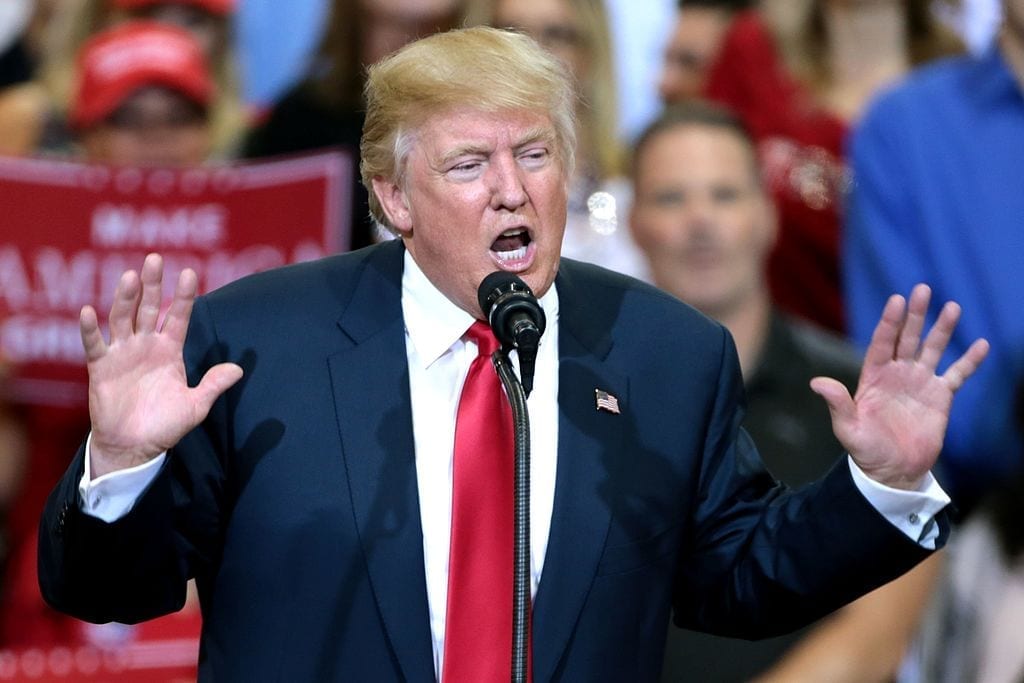An executive order limiting federal funding to sanctuary cities was ruled unconstitutional by a federal appeals court on Wednesday.
The 9th Circuit Court of Appeals said President Trump’s order was unconstitutional and that only Congress has the authority to withhold federal funds and grants. The three-judge panel also criticized a District Court ruling which had blocked the policy from taking effect nationwide.
“We conclude that, under the principle of Separation of Powers and in consideration of the Spending Clause, which vests exclusive power to Congress to impose conditions on federal grants, the Executive Branch may not refuse to disperse the federal grants in question without congressional authorization,” the panel determined in a 2-1 decision.
President Trump’s executive order was signed in January of 2017, shortly after his inauguration.
POLITICO.com reported that its content dealt mostly with interior immigration enforcement. The 9th Circuit Court ruled against a specific provision that penalizes ‘jurisdictions’ which don’t cooperate with federal immigration authorities.
Such jurisdictions, at least at the local level, are commonly referred to as ‘sanctuary cities.’ Ironically, Washington, DC is one of the top five most immigration-friendly cities in the country.
U.S. Attorney General Jeff Sessions has, along with the president, been an outspoken critic of sanctuary cities and their policies. The White House has frequently condemned the leadership of cities like Chicago, San Francisco and Philadelphia for putting immigrant safety before citizen safety.
The Justice Department issued a statement on the 9th Circuit Court’s ruling, blasting it as a “victory for criminal aliens in California.”
“Today’s divided Ninth Circuit opinion is a victory for criminal aliens in California, who can continue to commit crimes knowing that the state’s leadership will protect them from federal immigration officers whose job it is to hold them accountable and remove them from the country,” said Justice Department spokesman Devin O’Malley.
However, O’Malley did applaud the court’s decision to send the nationwide injunction back to district courts for reconsideration.
“When courts issue nationwide injunctions and order relief beyond the scope of a particular lawsuit, they overstep their role and improperly limit the government from function,” he said.
The suits in question, says POLITICO, were led by San Francisco and Santa Clara counties, both of which are in California. Both plaintiffs claimed that billions of dollars in federal money could be improperly withheld by the president’s executive order.
California and the commander-in-chief have had a rocky relationship since Trump struck up a part-time residency in Washington.

Last month, writes POLITICO, another district court judge discarded an administration request to overturn a California law designed to limit information sharing between local authorities and federal immigration officials.
Santa Clara County counsel James R. Williams praised the courts decision on Wednesday.
“Today, the Ninth Circuit joined with courts across the country in holding that the Trump Administration’s unconstitutional abuses of power cannot stand,” Williams said. “The Ninth Circuit decision is a victory for the Separation of Powers principles at the core of the Nation’s Constitution. Put simply: the President cannot use the threat of defunding as a weapon to force local governments to abandon policies that make their communities safer.”
Sources
9th Circuit rules White House can’t withhold money from ‘sanctuary cities’
Federal appeals court rules Trump sanctuary city order unconstitutional


Join the conversation!